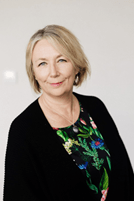EDUCATIONAL LEADERSHIP
The Educational Leadership SIG was launched at the AGM on 19 November 2015.
The NZARE SIG aims to provide a forum in which researchers can engage in stimulating discussion and critical thinking with respect to the diverse nature of educational leadership.
Rationale
It is important that as educational leaders we stay current and knowledgeable about the latest ideas and thinking. The Educational Leadership SIG will provide a forum to give members with similar professional specialities the opportunity to exchange ideas and keep themselves informed about current and discrete developments in this field. The activities of this SIG, planned by our members and elected officers will provide a clear indication of the diverse interests and needs of the Educational Leadership SIG members.
As a SIG we want to not only share but promote particular issues or points of views. As an exclusive professional community within NZARE this SIG will offer members a number of exclusive benefits. This SIG will advocate for educational leaders across all settings, and promote the development and dissemination of applied research in educational leadership practice and policy.
Research Interests:
Educational Leadership Theories
Educational Leadership Practice
Educational Leadership Policy
Indigenous Educational Leadership
2024 Co-Convenors


Stephen McConnachie
Stephen is an education consultant based in Ōtautahi Christchurch. He works with schools and tertiary providers to support their e-learning programmes, their leadership development, and the overlap between the two. He is also a founding member of the Waitaha Regional Digital Equity group working towards digital equity in the Waitaha region. Stephen’s research interests include e-learning, digital equity, educational leadership, and assessment and curriculum design for 21st-century education.
Miranda Makin
Miranda is Tumuaki at Rototuna Senior High School. She has been involved in the education system for most of her career, as a teacher and a school leader. As she has moved further into school leadership, she moved away from the classroom and away from working directly with students influencing their outcomes. Now as a senior school leader, she has experienced the same expectation of improving outcomes, albeit indirectly working through middle leaders and teachers to reach instructional practices in the classroom.
Leading instructional improvement is of personal and professional significance to Miranda. It has motivated her doctoral research investigating how senior leaders’ approaches to leading influence the capabilities middle leaders develop on the job. As well as being able to critically reflect on her own leadership practice, Miranda’s research focuses on contributing to our understanding of the dynamic interplay between the layers of leadership in a secondary school setting.